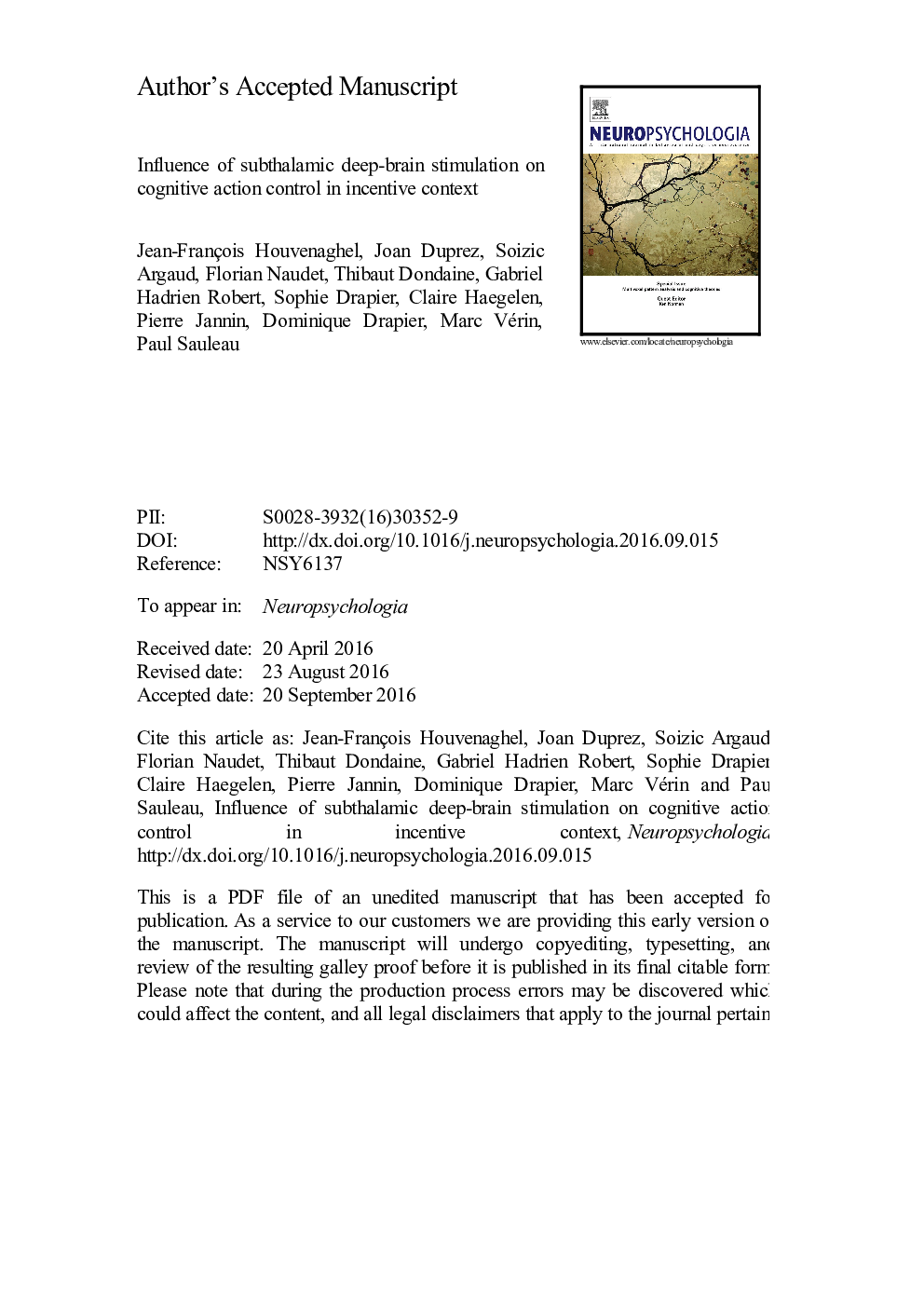| Article ID | Journal | Published Year | Pages | File Type |
|---|---|---|---|---|
| 7318729 | Neuropsychologia | 2016 | 52 Pages |
Abstract
Subthalamic nucleus deep-brain stimulation (STN-DBS) is an effective treatment in Parkinson's disease (PD), but can have cognitive side effects, such as increasing the difficulty of producing appropriate responses when a habitual but inappropriate responses represent strong alternatives. STN-DBS also appears to modulate representations of incentives such as monetary rewards. Furthermore, conflict resolution can be modulated by incentive context. We therefore used a rewarded Simon Task to assess the influence of promised rewards on cognitive action control in 50 patients with PD, half of whom were being treated with STN-DBS. Results were analyzed according to the activation-suppression model. We showed that STN-DBS (i) favored the expression of motor impulsivity, as measured with the Barratt Impulsiveness Scale, (ii) facilitated the expression of incentive actions as observed with a greater increase in speed according to promised reward in patients with versus without DBS and (iii) may increase impulsive action selection in an incentive context. In addition, analysis of subgroups of implanted patients suggested that those who exhibited the most impulsive action selection had the least severe disease. This may indicate that patients with less marked disease are more at risk of developing impulsivity postoperatively. Finally, in these patients, incentive context increased the difficulty of resolving conflict situations. As a whole, the current study revealed that in patients with PD, STN-DBS affects the cognitive processes involved in conflict resolution, reward processing and the influence of promised rewards on conflict resolution.
Keywords
Related Topics
Life Sciences
Neuroscience
Behavioral Neuroscience
Authors
Jean-François Houvenaghel, Joan Duprez, Soizic Argaud, Florian Naudet, Thibaut Dondaine, Gabriel Hadrien Robert, Sophie Drapier, Claire Haegelen, Pierre Jannin, Dominique Drapier, Marc Vérin, Paul Sauleau,
